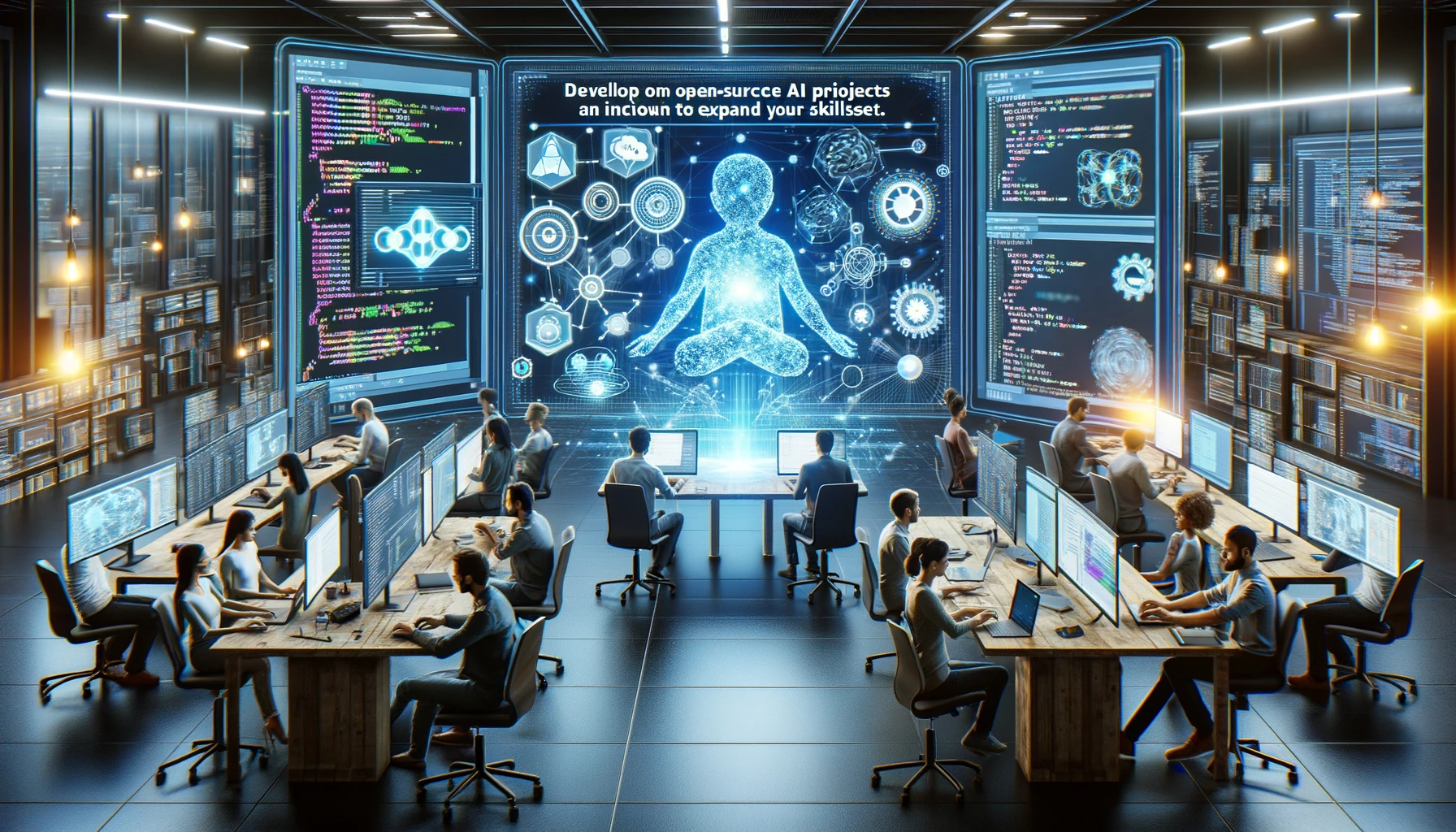Artificial intelligence (AI) is shaping the future of technology, offering endless possibilities for those who can harness its power. GitHub, a global hub for open-source projects, is a goldmine for AI enthusiasts looking to expand their skillset. In this guide, we’ll show you how to leverage open-source AI projects on GitHub to take your skills to the next level.
Why Open-Source AI Projects?
Open-source AI projects on GitHub offer significant benefits:
- Skill Development: Practical exposure to real-world challenges accelerates learning.
- Global Collaboration: Work with experts and enthusiasts worldwide.
- Rapid Innovation: Projects evolve quickly with contributions from diverse developers.
- Portfolio Building: Contributions to high-profile projects enhance your resume.
The Developer’s Guide to Open-Source AI Projects on GitHub
Here are ten GitHub AI repositories that can help you expand your skillset.
1. scikit-learn
Repository: scikit-learn/scikit-learn
Stars: 57k+
Forks: 25k+
Description: scikit-learn is a Python library that provides tools for data mining and machine learning. It’s known for its simple, efficient, and user-friendly APIs.
Why Try It?
- Comprehensive Algorithms: Access tools for classification, regression, clustering, and more.
- Rich Documentation: Learn with detailed guides and examples.
- Community Support: Engage with data scientists and machine learning enthusiasts.
2. PyTorch
Repository: pytorch/pytorch
Stars: 69k+
Forks: 19k+
Description: PyTorch is a flexible and easy-to-use deep learning library. Its dynamic computation graphs and strong GPU acceleration have made it a favorite among researchers.
Why Try It?
- Dynamic Graphs: Experiment with flexible computation graphs for model training.
- Advanced Tools: Access features like TorchScript, ONNX export, and quantization.
- Active Community: Collaborate with a global network of deep learning enthusiasts.
3. OpenCV
Repository: opencv/opencv
Stars: 71k+
Forks: 27k+
Description: OpenCV is a leading open-source computer vision library used for tasks like object detection, image recognition, and augmented reality.
Why Try It?
- Comprehensive Vision Tools: Experiment with tools for image processing and computer vision.
- Cross-Language Support: Work with Python, C++, Java, and more.
- Community Engagement: Participate in coding challenges, hackathons, and discussions.
4. spaCy
Repository: explosion/spaCy
Stars: 27k+
Forks: 4k+
Description: spaCy is a Python NLP library designed for efficiency and ease of use. It provides tokenization, named entity recognition, syntactic parsing, and other features.
Why Try It?
- Efficient NLP Models: Access efficient tools for various NLP tasks.
- Production-Ready: Learn to build and deploy NLP models in production.
- Integrations: Integrate spaCy with TensorFlow, PyTorch, and other libraries.
5. Hugging Face Transformers
Repository: huggingface/transformers
Stars: 110k+
Forks: 22k+
Description: Hugging Face’s Transformers library offers pre-trained models for natural language processing (NLP) tasks.
Why Try It?
- Pre-Trained Models: Utilize models like BERT, GPT-3, and T5.
- Detailed Tutorials: Learn with comprehensive guides and examples.
- Inclusive Community: Join a global network of NLP enthusiasts.
6. Keras
Repository: keras-team/keras
Stars: 57k+
Forks: 19k+
Description: Keras is a high-level neural networks API known for its user-friendly and modular design.
Why Try It?
- Easy to Learn: Build deep learning models quickly with simple APIs.
- Backend Flexibility: Work with backends like TensorFlow, Theano, and CNTK.
- Vibrant Community: Engage with students, researchers, and industry professionals.
7. LightGBM
Repository: microsoft/LightGBM
Stars: 15k+
Forks: 4.5k+
Description: LightGBM is a gradient boosting framework optimized for performance and distributed training.
Why Try It?
- Optimized Learning: Experiment with optimizations for GPU training and parallel learning.
- Cross-Platform Compatibility: Access bindings for Python, R, and other languages.
- Industry Impact: Work on projects impacting finance, healthcare, and more.
8. MLflow
Repository: mlflow/mlflow
Stars: 17k+
Forks: 4k+
Description: MLflow is an open-source platform to manage the machine learning lifecycle, covering experimentation, reproducibility, and deployment.
Why Try It?
- Lifecycle Management: Track experiments, manage models, and deploy efficiently.
- Flexible Deployment: Deploy to Docker, Kubernetes, and more.
- Comprehensive Tracking: Efficiently track experiments and manage model versions.

Open-Source AI Projects
9. Fastai
Repository: fastai/fastai
Stars: 25k+
Forks: 6.4k+
Description: Fastai simplifies deep learning training with high-level abstractions.
Why Try It?
- Simplified Training: Access high-level components for efficient training.
- Free Courses and Tutorials: Learn with comprehensive educational resources.
- Active Forums: Participate in forums and study groups.
10. Detectron2
Repository: facebookresearch/detectron2
Stars: 26k+
Forks: 5.5k+
Description: Detectron2 is Facebook AI Research’s computer vision library for object detection.
Why Try It?
- Advanced Object Detection: Experiment with Mask R-CNN, RetinaNet, and DensePose.
- Scalable Implementation: Handle real-world datasets and applications.
- Research Collaboration: Collaborate with researchers in computer vision.
How to Maximize Learning and Contributions
To make the most of GitHub AI repositories, consider these tips:
- Read the Docs: Familiarize yourself with the project’s goals and contributing guidelines.
- Start Small: Begin with simple tasks like fixing typos or improving documentation.
- Join Discussions: Participate in GitHub issues, forums, and dedicated channels.
- Review Code: Reviewing code helps you understand the project’s standards and patterns.
- Pair Programming: Collaborate with other contributors via pair programming.
- Open Issues: Help tackle open issues or propose new features.
Final Thoughts: Collaborate and Learn
Open-source AI projects on GitHub provide a rich learning environment for developers. By exploring these top repositories, you can sharpen your skills, build your portfolio, and make a meaningful impact in the AI community. Start small, contribute consistently, and leverage GitHub to expand your AI skillset.
